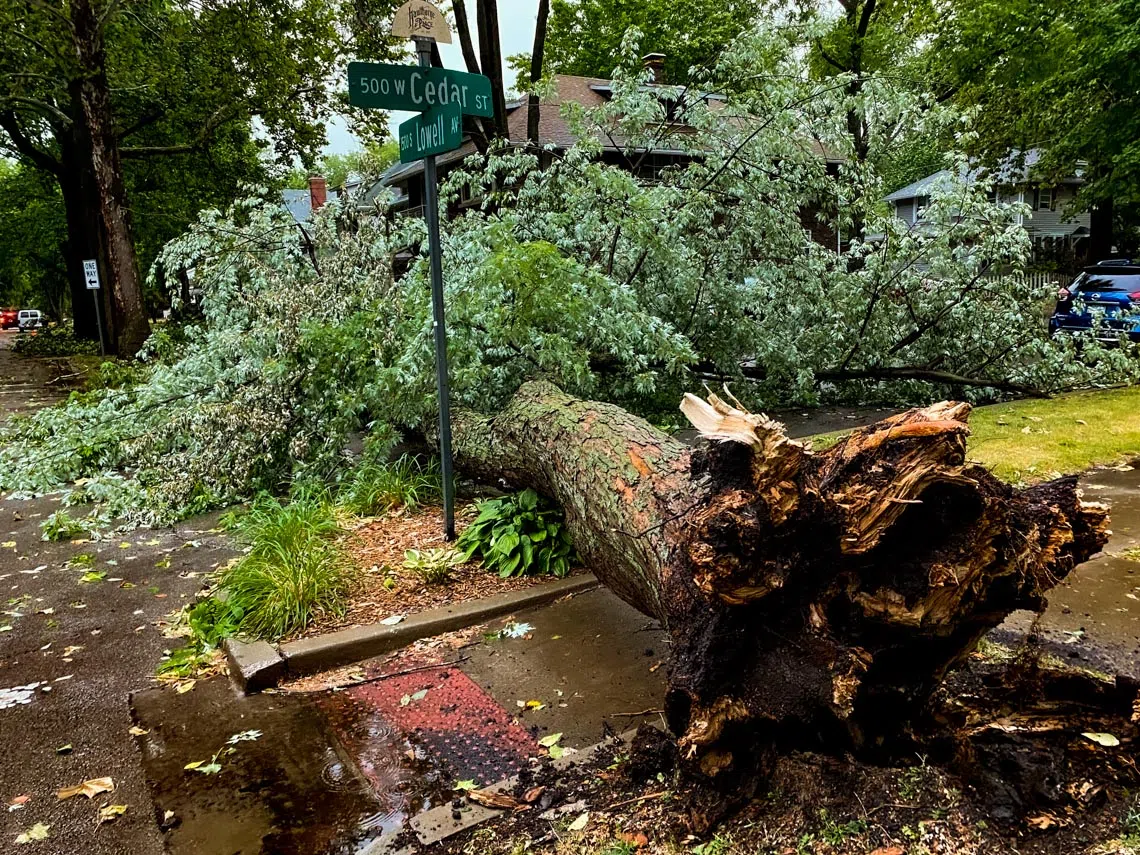Insurance industry officials defended recent homeowners insurance rate spikes this week, blaming such factors as inflation and climate change while warning that attempts to regulate their ability to set rates would be bad for consumers.
In testimony during a virtual meeting Wednesday of the Senate Insurance Committee, officials pushed back against criticisms by Gov. JB Pritzker and legislative leaders who said the hikes raise suspicions that Illinois homeowners are being charged extra to help cover insurance losses caused by wildfires, hurricanes and other natural disasters elsewhere in the country.
Robert Gordon, a senior vice president at the American Property Casualty Insurance Association, said property losses from natural disasters are common in Illinois, and they have been growing more frequent.
“Chicago is the most at-risk of any major city for severe convective storms,” he said. “That’s storms like thunderstorms, hail, tornadoes. … Both the average annual losses and the number of billion-dollar-plus disasters in Illinois has dramatically increased over the last several years.”
Calls for regulation
In July, Pritzker called on lawmakers to pass legislation in the upcoming fall veto session that would give the Illinois Department of Insurance regulatory authority over the rates companies charge for homeowners insurance.
That came after one of the largest insurers in the Illinois market, Bloomington-based State Farm Insurance, announced it was raising premiums for residential property casualty insurance in Illinois by an average 27.2%.
“These increases are predicated on catastrophe loss numbers that are entirely inconsistent with the Illinois Department of Insurance’s own analysis — indicating that State Farm is shifting out-of-state costs onto the homeowners in our state,” Pritzker said in a statement. “Hard-working Illinoisans should not be paying more to protect beach houses in Florida.”
State Farm disputed that claim, saying the rate increases were the direct result of property insurance losses in Illinois. It noted the company had lost money in its homeowners’ line of business in 13 of the last 15 years.
But State Farm’s action also highlighted the fact that Illinois is the only state in the nation whose insurance regulators do not have authority to review and either approve, modify or reject proposed premium changes in the homeowners insurance market. Only in recent years has the General Assembly given the department regulatory authority over health insurance premiums.
‘Competition’ as a regulator
Nat Shapo, a former director of the Illinois Department of Insurance under former Gov. George Ryan from 1999 to 2003 who is now an attorney in private practice, testified that the primary job of state regulators should be to make sure insurance companies remain solvent, not to put caps on the premiums they charge.
“That’s because the greatest harm to policyholders that your constituents is when a carrier can’t pay their claims,” he said.
Instead of regulating premiums, Shapo said, Illinois has traditionally relied on market competition to keep rates affordable while regulators have focused on making sure the premiums companies charge are sufficient to provide them with enough capital to pay claims.
He said regulating premiums in a way that inhibits companies from adapting to changing circumstances often results in driving some carriers out of the market, thereby weakening competition and raising prices for consumers even further.
“For 50 years since the market became competitive, (Illinois) has used competition, the most ruthless regulator of price, to regulate insurance rates,” Shapo said. “The results have been very good.”
Sen. Julie Morrison, D-Lake Forest, who chairs the committee, said Wednesday’s hearing was for informational purposes only. She said more hearings will be held before the committee considers any legislation, but she did not indicate when the next hearing would be.
Capitol News Illinois is a nonprofit, nonpartisan news service that distributes state government coverage to hundreds of news outlets statewide. It is funded primarily by the Illinois Press Foundation and the Robert R. McCormick Foundation.





